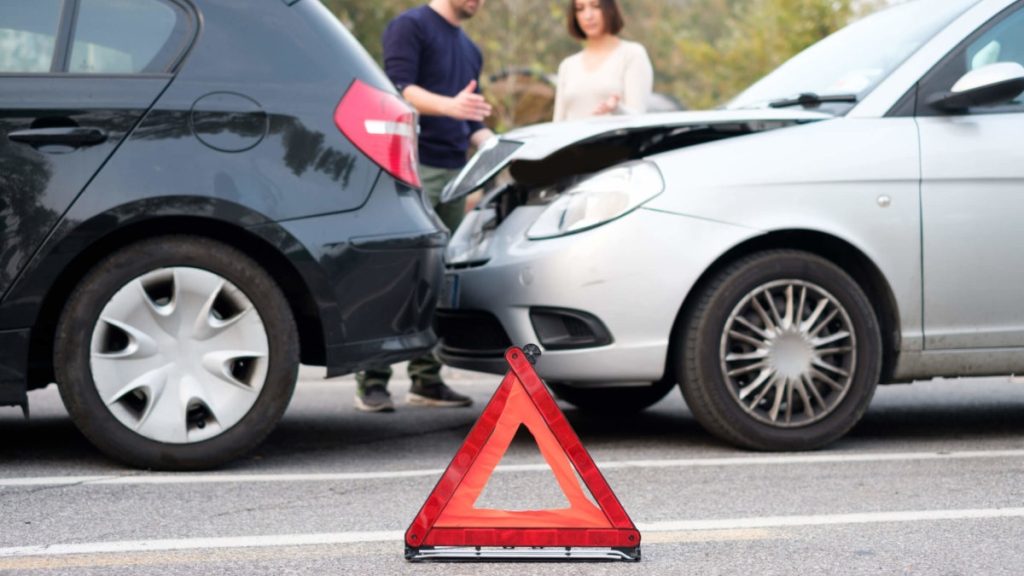After a car has been involved in an accident, its owner may seek a number of damages. Many of these are related to the victim’s personal injury such as medical bills and lost wages. But the damage that has been done to the vehicle, and specifically how bad that damage is, also needs to be determined. Text Kevin Accident Attorneys work on behalf of car accident victims by seeking the maximum amount of compensation available under the law, including for property damage. Here we take a look at what accident victims need to know about repairing or replacing their vehicles.
Car Damage: More Than Cosmetic Issues
Some accidents are minor and result in little more than bumps, scratches, and dings to the exterior of the vehicle. While these can all cost money to repair, they are relatively less serious compared to lost bumpers, broken windows, and destroyed side view mirrors. These and similar forms of vehicle damage can be more costly, depending on the make, model, and year of the vehicle.
In a more serious wreck, the amount of damage done to the automobile becomes a greater problem than a simple cosmetic or replacement issue. The damage can seriously impact the safety of the vehicle and possibly make it illegal to drive. Significant harm to the automobile could permanently damage its basic functionality, for example by destroying the transmission or other key components. All of this can lessen the overall value of the vehicle.
Questions to Ask in Determining the Extent of Car Damage
Wrecked cars take time to fix, and initial estimates are sometimes far off the final repair bill. But body shops will typically ask a few questions as they begin to assess just how bad the damage is. Here are a few examples:
Can the car even be saved? When a wrecked automobile is brought into a body shop, a determination must be made as to whether the damage can be undone. In other words: is the car repairable? If it isn’t, then it may be considered a total loss. This is commonly referred to as a “totaled” vehicle. The insurance company may also believe the vehicle to be totaled, as discussed below.
Are there hidden issues? In determining whether the automobile can be repaired, it’s imperative that the body shop uncover any hidden damage that may have been done to it. Not all losses are obvious and may not even be revealed in the course of normal driving. But hidden damage can weaken essential safety components of the vehicle and gradually degrade into something much worse. This is especially the case when structural damage has been done to, for instance, the frame of the vehicle.
What is a reasonable cost to repair the car? By examining what was done to the vehicle, including any hidden damage, another important question is raised: how much will the repairs cost? Naturally, both the owner and the insurance company will need to know this. The dollar figure often determines whether the damage is in fact major. It’s a safe bet that, in general, anything above $5,000 is likely to be considered by everyone to be major car damage. More expensive or luxury vehicles may even see repair bills reaching the tens of thousands of dollars.
How long will the owner be without the vehicle? Any number of variables can affect the answer to this question. Greater damage means more time to repair and therefore more time the car is in the body shop. But parts can be difficult to locate. There may be shipping delays. The body shop could be short staffed. Perhaps there are other vehicles the mechanics are already working on. At the end of the day, the owner may find him- or herself without a means of transportation for days or even weeks.
Insurance Considerations For Your Damaged Vehicle
Remember, one of the first questions that a body shop will ask is whether the vehicle has been totaled. But the insurance company will want to know the answer to this as well, and may come to a different conclusion than what the body shop determines.
In the eyes of the insurer, a vehicle is generally considered totaled when the cost of all repairs exceeds a specific percentage of the car’s value. What percentage this is may vary from one insurance company to another, but the decision to deem the vehicle totaled could have a significant impact on the victim’s insurance claim.
If the insurer declares that the vehicle is a total loss, then it will usually offer to settle the damage claim by making a payout based on the car’s current market value. However, this may not be a significant amount of money. Remember that the insurance company is looking out for its bottom line and will usually do whatever it can to maximize profits by minimizing claim payouts. It’s important that you do some research to determine if the amount that has been offered is fair. If it’s not, then you have the right to negotiate the amount.
Are Your Rights Being Protected? Talk to an Accident Attorney
While you can negotiate the payout with your insurance company, it may take help from an attorney to win a fair settlement (or for the at-fault party to be compelled to make up the difference). If you’ve been in a California car accident and want to know more about automobile property damage, read our blog post. And reach out to us about seeking all damages that you deserve – including the ones you personally suffered. Call us today.




